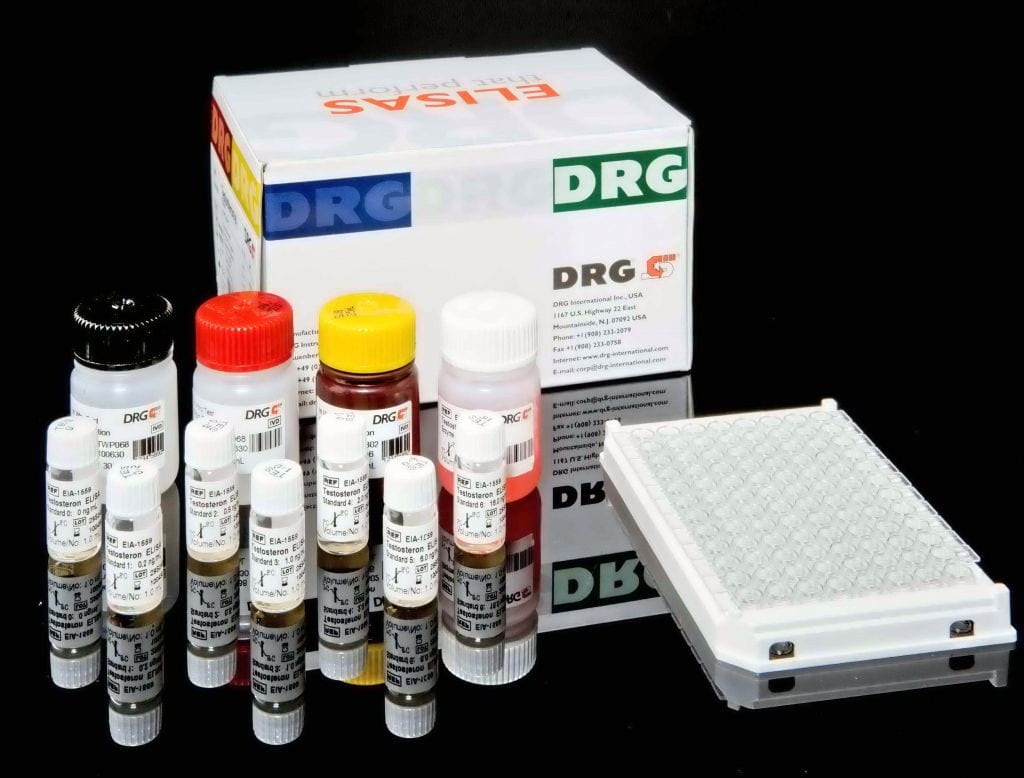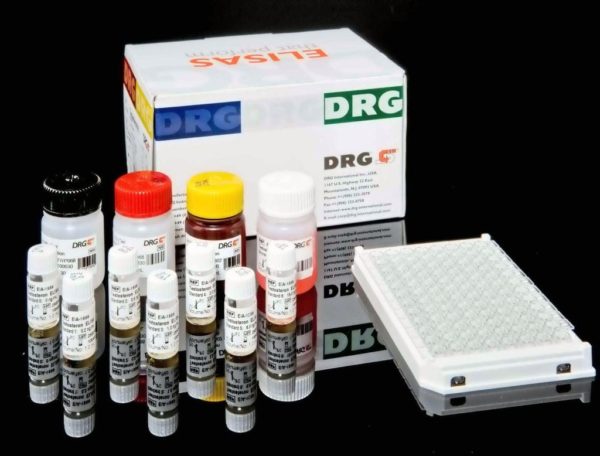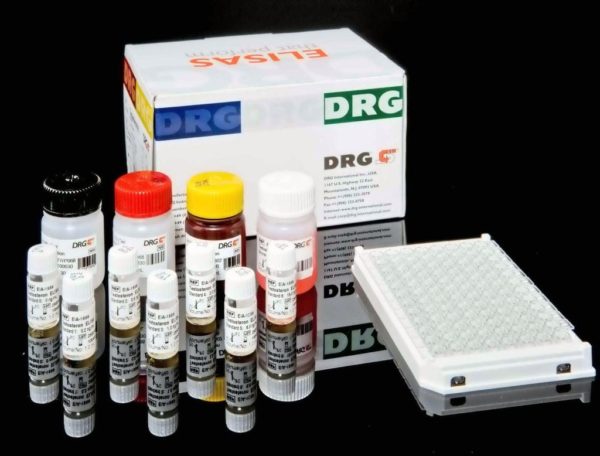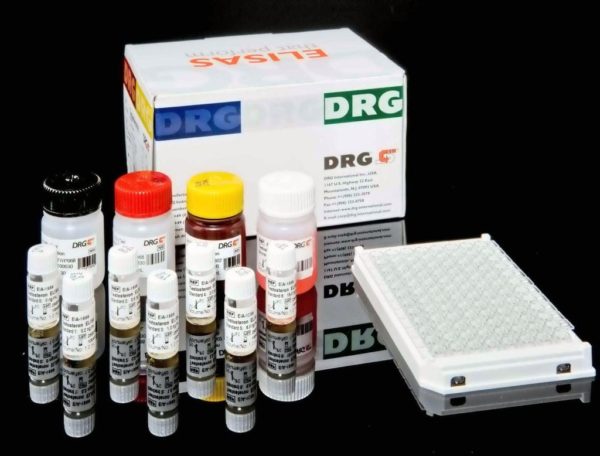Description
An enzyme immunoassay for the quantitative determination of ACTH (Adrenocorticotropic Hormone) in plasma.
ACTH (Adrenocorticotropic hormone) or corticotropin is a 39-amino acid peptide hormone (MW=4500) secreted by the pituitary to regulate the production of steroid hormones by the adrenal cortex. ACTH secretion from the anterior pituitary is controlled by both a classical negative feedback control mechanism and CNS-stress mediated control system.1 Various types of stress or pain perceived in higher levels of the brain modulate secretion of the hypothalamic neurosecretory hormone, corticotropin releasing hormone (CRH), a
41-amino acid peptide. CRH stimulates pituitary ACTH secretion. The second peptide that modulates ACTH secretion is vasopressin (AVP). AVP secretion is also stimulated by stress and acts synergistically with CRH to increase ACTH secretion in the pituitary portal circulation. ACTH increases the synthesis and release of all adrenal sterioids, aldosterone, cortisol and adrenal androgens. It is the principal modulator of cortisol, the most important glucocorticoid in man. As the cortisol level in blood increases, release of ACTH is inhibited directly at the pituitary level. Through this same mechanism, decreasing cortisol levels lead to elevated ACTH levels. 2,3,4,5 Biologically active ACTH results from enzymatic cleavage of a large precursor molecule, pro-opiomelanocortin (POMC). This molecule contains within its structure the amino acid sequences of ACTH, Pro-ACTH, §-melanocyte stimulating hormone, lipotropin, as well as endorphin and the enkephalins. Because the reaction in immunoassays is determined by antigenic structure, not biological function, the usual ACTH RIA reacts with POMC, Pro-ACTH, ACTH and some fragments of the ACTH.5 Like other pituitary hormones, ACTH is secreted in a pulsatile manner. These small pulses are superimposed on a characteristic diurnal fluctuation of greater amplitude. In healthy individuals, ACTH reaches a peak in the early morning (6:00 – 8:00 hour) and levels become lowest late in the day and near the beginning of the sleep period. Because of this diurnal rhythm it is customary to draw plasma ACTH samples between 8:00 and 10:00 hour. However, differentiation of patients with CushingÕs disease from normal individuals may be best achieved on samples obtained in the evening (16:00 – 18:00 hour). In CushingÕs disease and in ectopic ACTH syndromes, the diurnal pattern of ACTH secretion is generally absent. Stress may also override the diurnal variation.




